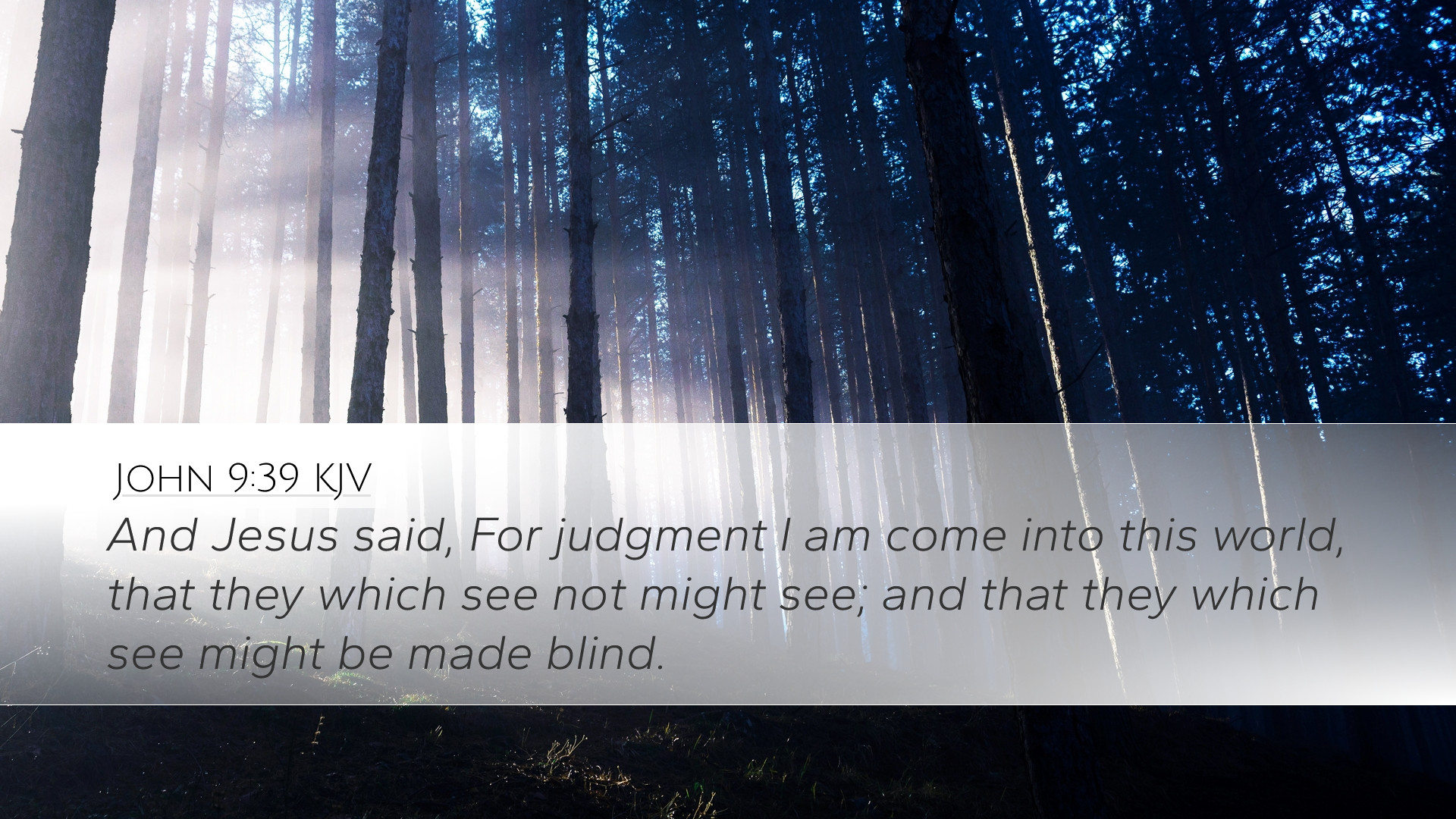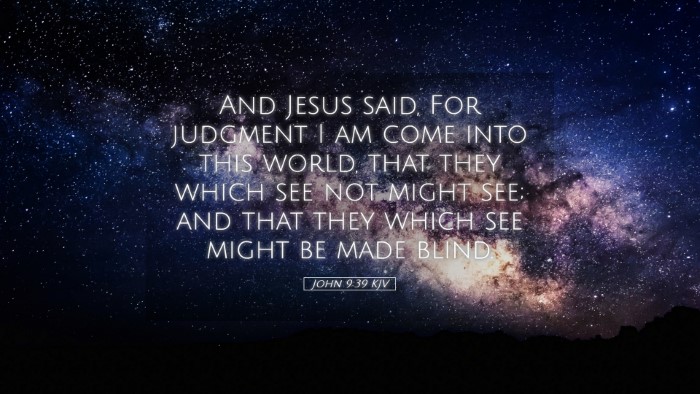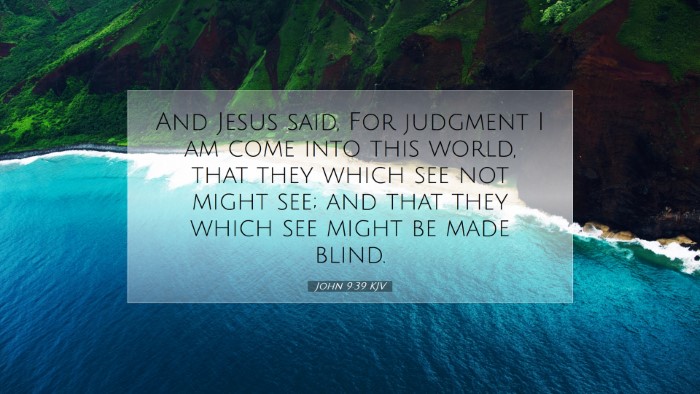John 9:39 Commentary
Verse: "And Jesus said, For judgment I am come into this world, that they which see not might see; and that they which see might be made blind."
Contextual Overview
The ninth chapter of the Gospel of John recounts the miraculous healing of a man born blind, showcasing Jesus’ power and authority. The narrative transitions to a theological discussion about spiritual blindness and the nature of judgment. This verse serves as a pivot point, reflecting on Jesus' purpose while simultaneously revealing the hearts of those who witness His miracles.
Exegesis and Theological Insights
In this passage, we observe two significant concepts: judgment and revelation. Jesus asserts that His coming into the world has a dual purpose: to offer sight to the spiritually blind and to expose the blindness of those who think they can see.
Judgment and Its Implications
Matthew Henry elaborates on the concept of judgment in this context, emphasizing that Jesus' mission is not merely to condemn but to reveal the true state of humanity. He contrasts physical sight with spiritual insight, indicating that many who are confident in their understanding of God and righteousness may, in actuality, be profoundly blind.
Importance of Spiritual Sight
Albert Barnes highlights that Jesus offers spiritual sight to those who are aware of their lack, as illustrated by the man born blind who receives both physical healing and spiritual revelation. Barnes suggests that the healed man's humble acknowledgment of his need led to his enlightenment as he gradually recognized Jesus’ true identity.
The Paradox of Blindness
Adam Clarke points out the paradoxical nature of human understanding in the passage. While the physically sighted religious teachers of the law were spiritually blind, it is the marginalized, like the healed blind man, who attain true insight. This challenges conventional views of who is truly wise and enlightened in matters of faith.
Applications for Modern Believers
- Awareness of Spiritual Needs: Believers should cultivate an awareness of their own spiritual blindness, recognizing that reliance on self-perception can lead to misunderstanding of God’s will.
- Openness to God’s Work: Like the man born blind, individuals must remain open to God’s transformative work in their lives, accepting both physical and spiritual healing.
- Humility of Spirit: Humility is necessary for receiving God’s truth. Those who think they possess all knowledge may miss the profound realities of God’s kingdom.
Reflection on the Nature of Christ’s Mission
Christ’s mission is characterized by both grace and truth. His proclamation that He came for judgment does not denote a harsh condemnation but rather an invitation to transformation. As referenced by Henry, “Christ is both light and judge,” illuminating the paths of those lost in darkness while discerning the hearts of those who think they dwell in light.
Conclusion
In John 9:39, Jesus encapsulates His profound role in both exposing spiritual blindness and offering sight to the weary and lost. The insights from public domain commentaries prompt believers to reflect deeply on their spiritual conditions, challenge complacency, and receive God’s gracious invitation to see truly. As pastors, students, theologians, and scholars engage with this text, may they experience a renewed understanding of Christ’s dual role as both a giver of sight and a judge of the hearts.


